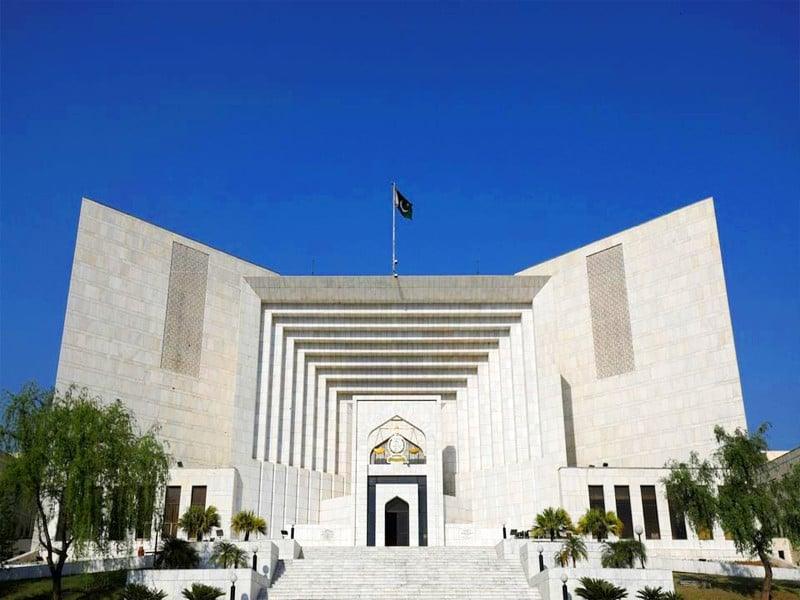Justice Hassan Azhar Rizvi has questioned whether there is any difference between those who commit terrorist acts cooperate with enemy spies and ordinary civilians.
His remarks came when he joined a lwyer during the hearing of an intra-court appeal on civil lawsuits in military courts.
He emphasized that the lawyer should distinguish in their arguments, Express News reported.
The Supreme Court, under Justice Aminuddin Khan, hears the case with a seven-member constitutional bench.
Khawaja Ahmed Hussain, representing Justice (R) Jawad S. Khawaja, began his arguments by stating that civilians should never review the court as military legal procedures do not meet the standards of a fair trial.
Khawaja claimed that all five judges in the Supreme Court were not agreed on the transparency of the military trial process. Justice Hassan Azhar Rizvi replied by asking if there is no difference between those who commit terrorist acts, cooperation with the enemy’s spies and ordinary civilians. He insisted that the lawyer should distinguish in their arguments.
Khawaja Ahmed Hussain clarified that he did not defend terrorists or criminals. He further explained that if Court of Justice for Civilians was possible, there would have been no need for the 21st amendment.
Justice Hassan Azhar Rizvi noted that certain crimes were included in the Army Act through the 21st amendment.
Khawaja Hussain claimed that if the amendment of the Army Act was sufficient to allow court struggles, there would have been no need for a constitutional amendment. If the court match was possible, the court would have to decide that the 21st change was unnecessary. He also pointed out that Article 175 had been amended in the 21st amendment and there is no provision of bail until the decision was made in military courts.
Justice Hassan Azhar Rizvi noted that military courts are conducting rapid litigation and noting that if a decision is made within 15 days, the question of bail will be irrelevant.
In response, Khawaja Ahmed Hussain claimed that appeals do not go to an independent forum and the defendant has no freedom to choose their lawyer.
Justice Muhammad Ali Mazhar grabbed and asked Khawaja to limit her arguments to whether the central decision was correct or not. Justice Hassan Azhar Rizvi responded by referring to the example of the Shaikh Liaquat Hussain case and noting that there was no direct conflict between the public and the army at that time. He also pointed out an incident in Karachi where a major was abducted.
Justice Jamal Khan Mando Khel raised an important point regarding the 21st amendment stating that political parties were excluded from its provisions. He questioned why there should be a distinction in the lawsuit Jurisdiction asking if a terrorist attack against parliament, the Supreme Court and GHQ was why litigation should be held for attacks on parliament and the Supreme Court is held in anti-terrorism courts while GHQ attacks would go to a military court? He argued that all three attacks should be treated the same.
Khawaja Ahmed Hussain called on the right not to open a door that would allow civilians to be prosecuted by military courts. Justice Aminuddin Khan clarified that the court did not open anyone dying but only decided whether the appeal should be accepted or rejected.
Khawaja Ahmed Hussain also noted that the Ministry of Defense’s lawyer had claimed that the appeal pursuant to Article 184 (2). 3, was not allowed. The lawyer stated that Article 8 (2). 3a), applies in cases where the request can be assumed for treatment. If Article 184 (2) 3, cannot be used in this case, it cannot be used in any other case. Justice Yahya Afridi noted that Article 184 (2). 3, was to be used carefully, but he also agreed that direct applications under this article were allowed in military courts.



